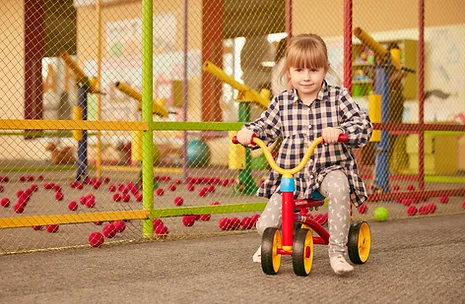In April, we shared tips on how best to succeed academically with the transition from elementary to middle. This month we share the importance of focusing on the social challenges that students face with the transition as well.
Remember when your tike begged you to take off the training wheels. Their desire for independence and doing something on their own did not mean they didn’t have fears and uncertainty about riding the bike without the training wheels.
They had the confidence to take that step because they knew that although they were testing the independent waters, you were there for them. Now as they are moving from elementary to middle school, it is time again to take off the training wheels so to speak.

Moving to middle school will bring new experiences, exposures, and opportunities for flowering independence. The excitement of starting middle school is interwoven with uncertainty. While all the apprehension and anxiety with this upcoming new life stepping stone can’t be eliminated. Experts agree the best possible way to help a rising middle school student learn to successfully navigate the new social scene is to keep an open line of communication.
Helping Your Tween
The first thing you as a parent can do is dig deep into the recesses of your middle school memories. Try to touch on the same emotions and feelings that you faced as you try to empathize and understand what your child will be experiencing. If you were worried if your friends would be in your classes, then your child is likely concerned too.
They will wonder what if they have a class with none of their friends? As the little fish in a bigger pond, they might have fears that the “upperclassman” will treat them badly or bully them.

It isn’t just a new school experience that your child will be facing. Many will also be transitioning from a child to an adolescent with hormone changes that create an influx of emotions, feelings, and physical changes. This time of life can compound concerns and fears that too many adults may seem and feel trivial, but to the middle school student, it might literally feel like the end of the world. Don’t discredit or dismiss your middle student’s emotions and feelings. Listen to their concerns and validate their feelings. Letting your child know what they are feeling is normal can lift a tremendous worry. At this point for them, it is more important that they be heard than you offering fixes.
Try statements like to let them know you are a safe place for them to share:
- I can understand why you feel that way.
- When I was your age, I felt the same way.
- This is really normal, and I can imagine how difficult it is.
At this age, many tweens will begin to pull away from their parents’ influence and look to friends and peers for guidance and acceptance. They will likely no longer want to stand out or be different. They will want to fit in with their peers. Research associate at Stanford University, Chris Rozek shares his findings. Middle school students start to become more concerned with how they are viewed by everyone else and friendships become more unstable. They will develop a fear of social rejection. The positive here is that with the increased exposure to new kids their age, there are more opportunities to make new friends. Research from Geoffrey Borman, a professor at the University of Wisconsin at Madison shows that when middle school students understand that their peers have the same worries about fitting in or succeeding in middle school they find comfort in that commonality and eventually have lessened anxieties associated with those original concerns.
Talk It Out
The summer before middle school starts is a great time to initiate some conversation to help ease some of the anxiety they might be having about starting middle school. Open by sharing your experiences of uncertainty and self-doubt from middle school.
- Ask probing questions that will encourage your child to open up
- What do you think about starting middle school in the fall?
- Tell me some things that you are worried about in the fall.
- What are you excited about?
- Once you have a dialogue established, transition to a conversation that: offers advice on how to be a good friend and what to do in different situations when peer pressure arises
- Let them know while they may be worried about others like them, it is equally important to not do anything that makes others feel those same worries.
- Role-play scenarios that allow your tween to practice how they would react in various situations they may face. (when friends make poor choices or deal with drama in friend circles)
It is just as important that your tween sees you as a safe place to talk without fear of judgment or repercussions if they want to approach you with topics that were once too mature for them as an elementary-age child. Some subjects that your child might face moving to middle school are body image, social media, and internet safety. Preemptively answer questions you think they might be too embarrassed or shy to ask. Assure them they can always come to you with fears, worries, and concerns. Use this time to frame the conversation so that it reiterates your core family values.
While you are the most influential help when it comes to their middle school transition, there are a few other things you can encourage to help them find their place in their new school situation. Suggest they join sports teams, clubs, and other extracurricular activities. Try to encourage social opportunities with church friends and grade school friends.
Parents could help by reminding kids they are awesome and listing all the things the kid is good at.
North Carolina native, Edith Cohn, a published middle-grade author, brings insight and advice after her experiences in the literary world and as a middle school teacher. She generously shared some of her thoughts, observations, and advice for our rising middle schoolers and their parents.

- “I think any book about building confidence would be good. Kids seem to lose it initially in middle school. They get self-conscious. Parents could help by reminding kids they are awesome and listing all the things the kid is good at.”
- “Remind kids they don’t have to be friends with kids who make them feel bad. I’m a firm believer in choosing to be around the people who build you up. That doesn’t give kids permission to be unkind. Let them know that they can choose not to spend time with those that make them feel bad but still be kind to everyone”
- “Help encourage your child to voice their needs. Kids at this age lose the confidence to tell other kids their needs. It’s ok to say ‘that hurt my feelings, can you try to be nicer.’ Younger grades do this with ease. Older grades clam up. Remind them they can try to talk it out.”
Ms. Cohn also shared her picks for summer reading before middle school starts.
- All Thirteen: The Incredible Cave Rescue of the Thai Soccer Team by Christina Soontornvat. It’s a page-turner and teaches about the advantages of staying positive in the face of adversity.
- Dork Diaries series by Rachel Renee Russell. It’s all about middle school and the kids love them.
- The Confidence Code for Girls: Taking Risks, Messing Up, & Becoming Your Amazingly Imperfect, Totally Powerful Self by Katty Kay and Claire Shipman. This book gives girls the tools to build confidence in the tricky territory of middle school, helps to understand how their brain works and faces real-life situations.
- Any biography. They are inspiring because so many of them are about people overcoming challenges to succeed.
We found a few others that top the list of suggested reading for rising middle school students. These titles assure tweens that they’re not alone during this difficult rite of passage and it can be done with a dose of humor.
- How to Survive Middle School by Donna Gephart
- Awkward by Svetlana Chmakova
Additionally, parents, it’s ok to reach out to experts. Kathy Piece Howard of Prep 4 Success, utilizes her experience as a guidance counselor to create an individual curriculum that can be ordered for your student to help with the challenges your child will face whether it be time management, or finding God’s plan for the future, or stress management.
At Cape Fear Christian Academy, you can rest assured that your child will be able to navigate their transition from elementary to middle in a safe environment that strives to cultivate leaders and academic excellence in a Christian environment.


